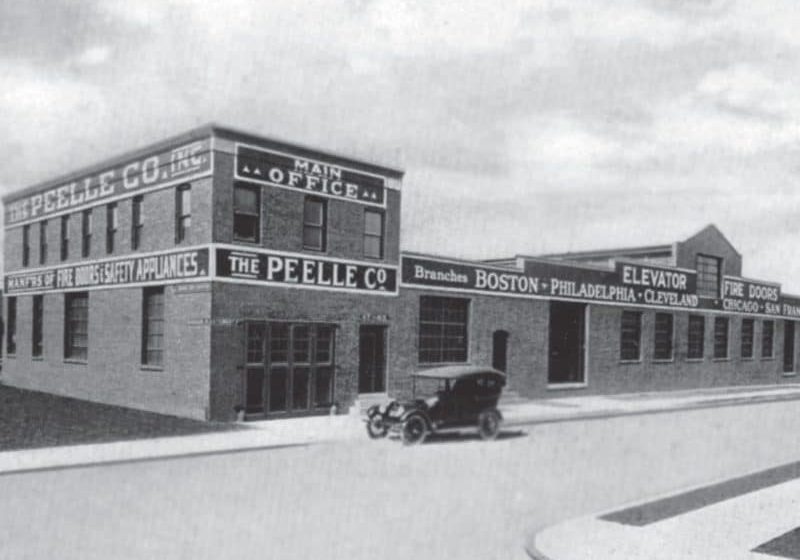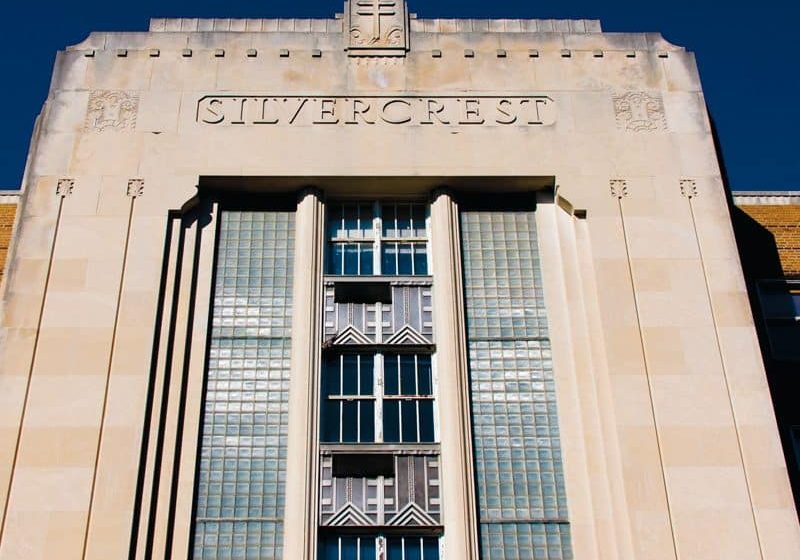In the quickly growing African market, training is critical for safety.
Despite the fact that fatal accidents involving vertical-transportation systems are rare here, Africa’s current commercial and residential real estate explosion calls for a re-evaluation of training for elevator installation and maintenance professionals, those in the industry said. Demand for commercial and residential space in Africa’s urban centers is growing, especially with the emergence of a huge middle class, which has been growing along with the region’s economies. In fact, data shows that Africa’s middle class has risen from 111 million in 1980, or 26% of the continent’s total population, to 313 million in 2010, or 34.3%.[1]
In the rush to meet rising demand for housing, the construction industry in general, and the elevator industry in particular, may have been infiltrated by backstreet companies and unqualified installation technicians. This has exacerbated safety concerns, initially raised by large lift manufacturers in the continent’s major cities.
Although statistics of fatalities linked to lifts, escalators and conveyances installed or serviced by unqualified technicians or contractors are hard to come by, players in the African vertical-transportation market admit the challenge exists, and that it is difficult to address without involving all stakeholders. Jaakko Kaivonen, KONE’s managing director for Distributors and New Operations, observed:
“There are cases of small companies entering the market that do not have the required support structures, tools, competencies or methods in place. There could also be a tendency [to opt] for cheap, non-manufacturer parts on installations. Professional builders, facility managers, housing authorities and other end users should request professional services from their vendors.”
Africa’s elevator market is set to expand, which will only increase demand for qualified and certified personnel.
Kenya emergency service provider St. John Ambulance reports that fatalities from lifts suspected to be old, poorly serviced or installed are troublesome. “It is becoming a major safety concern,” said Fred Majiwa, Nairobi-based spokesman for St. John Ambulance. “The number of cases we have been attending to is appalling. At least four people have died because of these accidents in 2013.”[2]
In one incident, a lift technician died and two of his colleagues were seriously injured when they fell from the seventh floor of the National Social Security Fund building in Nairobi while renovating an elevator. They are reported to have fallen after a ladder they were using snapped, leaving investigators to wonder about the quality of tools and equipment used by installation and maintenance workers. In another case, also in Nairobi, a man fell into an elevator shaft from the third floor of a building on Tom Mboya Street — an incident attributed to poor maintenance of the structure.
KONE believes its long-term business strategy of having a strong local presence backed by global offerings, processes and support will ensure sustainability of operations.
Last year the Nigerian government, concerned about what it saw as negligence in enforcing a code of conduct for personnel involved in the installation and maintenance of lifts, escalators and conveyances, unveiled new guidelines spelling out stiff penalties for those who fail to comply [ELEVATOR WORLD, November 2013]. Labour and Productivity Minister Emeka Wogu stated:
“The need to issue regulations on lifts, escalators and conveyors (LEC) arose from a noticeable gap in our effort to protect all Nigerians at work in places where LEC are put to use. This gap has manifested [itself] in the form of increasing frequency of accidents, injuries and deaths associated with lifts, escalators and conveyors. The Labour and Productivity ministry will not take lightly any violation by operators and will ensure strict enforcement through our labour-inspection services.”[3]
Africa’s elevator market is set to expand, which will only increase demand for qualified and certified personnel. Cong Jun, general manager of International Trade Co., a subsidiary of Shenyang Brilliant Elevator, said: “Many African countries are spending a lot on boosting industries such as transport, hospitality and tourism, so a lot of infrastructure building projects are needed. That means more elevators will be installed in public places such as office buildings, shopping malls, hotels, airports, railway stations and residential areas sooner or later.”[4] International Trade reports that it sold more than 245 elevators in 13 African countries in 2012.
To help meet anticipated demand, South Africa elevator manufacturers and the government have been promoting the National Certificate in Lift Installation and Maintenance Qualification to woo prospective trainees. The South African Qualifications Authority (SAQA), which offers the certification, says the program follows a system of training very similar to that of Australia. “Both sets of qualifications require an integration of theoretical learning and workplace experience, and they share a common approach to assessment,” SAQA noted.[5]
According to SAQA, the certification equips those who qualify “with a comprehensive range of skills and knowledge required to both install and maintain lifts, so the qualifications have been designed to meet this need.” The authority goes on to note that this approach differs from that of many other countries where people are recruited from related trades, then given industry-specific training. It also contrasts with countries where union resistance to multi-skilling restricts breadth of training.
KONE believes its long-term business strategy of having a strong local presence backed by global offerings, processes and support will ensure sustainability of operations. Having skilled employees in every country and city can be accomplished through KONE’s own operations, joint-ventures or authorized distributors, Kaivonen said. “Being able to provide reliable installation and effective preventive maintenance and repairs sets good companies apart from others,” he said. In addition, he said, KONE’s “train the trainer” concept has helped result in KONE’s revenue hitting the US$8.6 billion mark in 2012. The concept involves a local partner branch having its own dedicated trainer who receives regular training and has access to all the support, documents and materials he needs to keep his skills current.
Although elevator safety is built into a product’s design, Kaivonen says a large part of it takes place on site and involves individuals. He explained:
“Boxes of components are nothing if not installed by trained installers and maintained by professional technicians. In Africa, most of the elevators are in commercial buildings, where reliable operation is a must. In more and more countries, facility managers are starting to understand the need for regular preventive maintenance and that saving a few pennies by not maintaining equipment or having it maintained by non-professionals will cost them both in customer satisfaction and repairs.”
To enhance quality and safety in all its global elevator operations, KONE has global installation and service methods, tools and instructions as well as minimum safety standards. Kaivonen said although most of those involved in elevator installation and maintenance, such as electricians and engineers, have degrees from vocational schools or colleges, education alone is not enough. To ensure end-user safety and customer satisfaction, individuals must also receive ongoing training. KONE has one of three accredited training centers in South Africa, all of which are in-house type institutions.
As it is in many other countries, finding skilled labor is a challenge in South Africa, Kaivonen said. With a significant portion of the workforce entering retirement age, KONE has “invested heavily in training and development of our field [technicians] lately and has, for example, commenced a training program consisting of 25 new trainees,” he said.
“We believe that the key differentiator in the South African market is to have a competent workforce that has been trained in-house on our technology and processes.” — KONE’s Managing Director for Distributors and New Operations Jaakko Kaivonen
KONE South Africa is a merSETA (manufacturing, engineering, related services Sector Education and Training Authority)-accredited trade test center, which, apart from working with the company’s field staff to develop the required competencies for their roles, has also been accredited to train technicians from other lift companies. “We believe that the key differentiator in the South African market is to have a competent workforce that has been trained in-house on our technology and processes,” Kaivonen said.
Independent lift inspectors in South Africa are required to sign off on all new or modernised lift installations to ensure compliance with regulations. South African Lift and Escalator regulations are tightly aligned with EN-81. It is also a legal requirement for every lift installation to be inspected in the same way every two years, to not only avert technical complications, but also enhance user safety.
References
[1] African Development Bank Group, “Annual Development Effectiveness Review 2013” (www.afdb.org)
[2] “Are Elevators the Silent Death Traps?” The Standard, October 6, 2013.
[3] Daily Times, “Defaulters of Lift Operation Regulation Face Jail,” August 30, 2013.
[4] China Daily, “As Africa Ascends, Elevator Sector Booms,” September 24, 2013.
[5] South African Qualifications Authority Registered Qualification: National Certificate: Lift Installation and Maintenance (allqs.saqa.org.za/showQualification.php?id=58271)
Get more of Elevator World. Sign up for our free e-newsletter.









